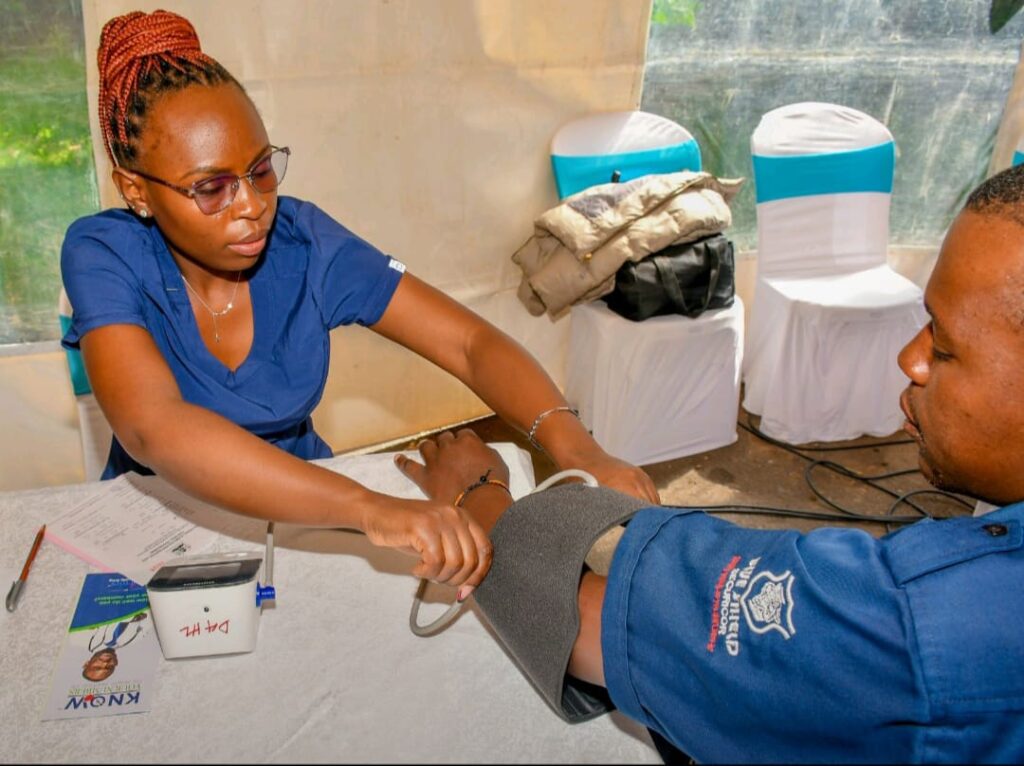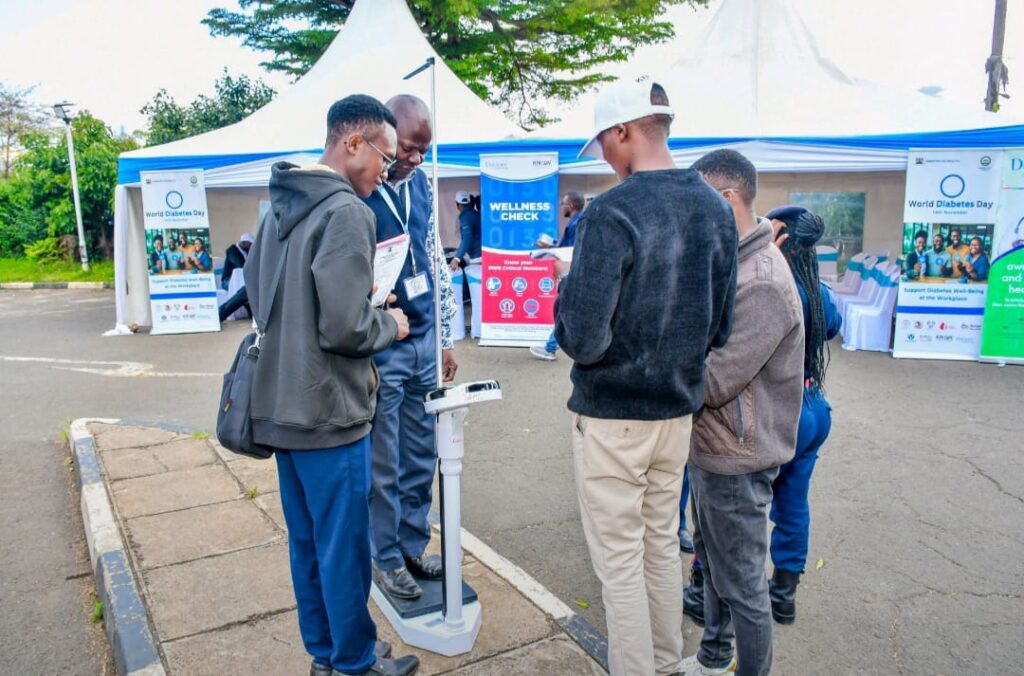By Juliet Akoth
As Kenya prepares to mark World Diabetes Day 2025, the Ministry of Health (MoH), in collaboration with the non-profit Doctors for Healthy Living (D4HL) and The National Treasury, has taken a significant step in the fight against diabetes by conducting a large-scale wellness screening for their staff members. The event, held at the National Treasury Building, comes at a time when diabetes is increasingly recognized as a major public health challenge in Kenya, affecting both individuals and the national economy.
During the screening, 154 staff members were screened for key health indicators such as blood pressure, blood sugar, cholesterol, waist circumference, and Body Mass Index (BMI). Each participant received personalized medical advice from healthcare professionals, highlighting the importance of early detection and prevention.

Recent data from the International Diabetes Federation (IDF) shows that 3.1 percent of Kenyan adults, or more than 813,000 people, are living with diabetes in 2025 with higher rates among men and older adults. Urban centers like Nairobi are particularly affected, with recent studies indicating that up to 7.5 percent of the city’s population may have diabetes. The economic impact is also severe, with a 2022 Cost of Illness Study estimating the annual cost of diabetes in Kenya at KES 24.6 billion, most of which is borne by urban areas.
“Locally, this rise is largely explained by the demographic and epidemiological transition whereby an increasingly aging and urbanising population witnesses a public health shift from predominantly ill-health due to infectious diseases to NCDs and injuries,” said Dr. Patrick Amoth, Director General of Health, during the launch of the National Clinical Guidelines on Management of Diabetes Mellitus.
The workplace focus of this year’s World Diabetes Day, themed “Diabetes and Well-being at the Workplace,” is especially relevant. According to the IDF, seven in ten people living with diabetes are of working age, and four in five experience diabetes burnout. Stigma, discrimination, and exclusion in the workplace can further undermine the health and productivity of those affected, with ripple effects on the national economy.

The screening at the Treasury was part of D4HL’s flagship “Know Your Numbers” campaign, which encourages Kenyans to monitor their five critical health metrics. “I am happy to say that we partnered with D4HL, a well-known organisation that has been at the forefront of promoting wellness initiatives, in rolling out the Know Your Numbers Campaign among MoH staff in May this year. We will continue to work with D4HL to ensure that more Kenyans are screened and educated,” said Dr. Gladwell Gathecha, Director of MoH’s Division of Cancer and NCDs.
The partnership between MoH and D4HL reflects a growing commitment to preventive healthcare. By expanding opportunities for routine wellness screening and empowering individuals with knowledge, the initiative aims to stem the tide of non-communicable diseases like diabetes before they become unmanageable.
The main national commemoration for World Diabetes Day 2025 will take place at Nairobi West Prison Grounds, led by the Ministry of Health in collaboration with the Nairobi City County Government and partners such as the NCD Alliance of Kenya, World Diabetes Foundation, Kenya Diabetes Management and Information Centre, and the Kenya Red Cross Society.
As Kenya grapples with the dual challenge of rising diabetes rates and limited healthcare resources, workplace wellness initiatives like this offer a practical blueprint for prevention and early intervention. By prioritizing education, regular screening, and supportive environments, Kenya can make significant strides in reducing the burden of diabetes and improving the well-being of its workforce.
